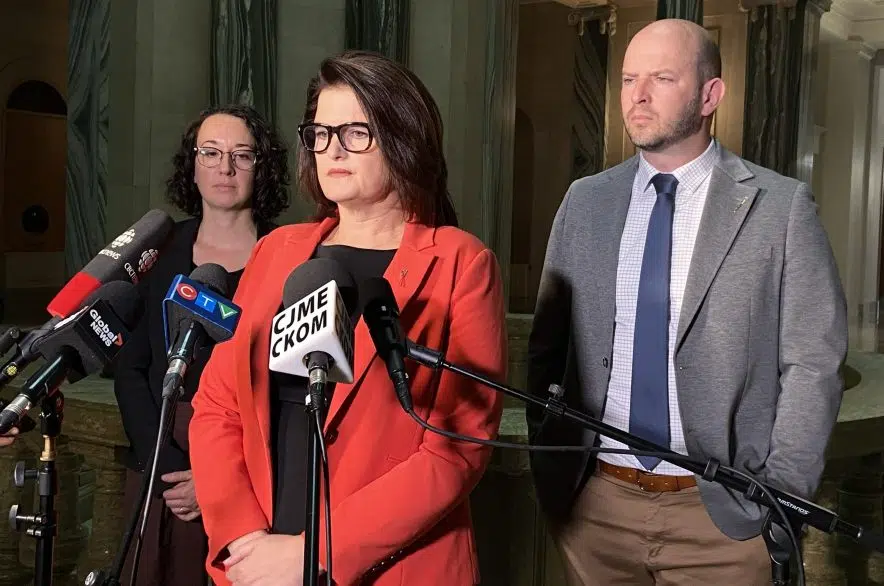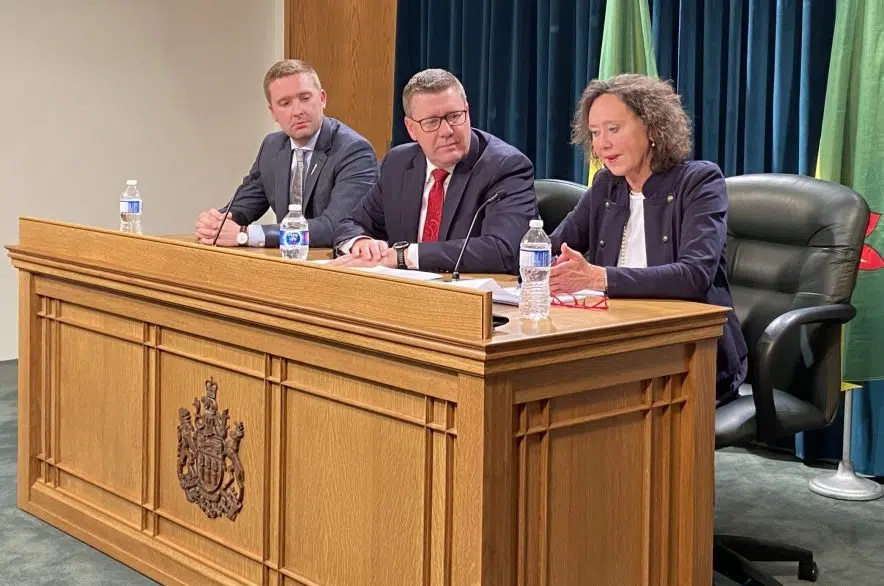For two months, proposed changes to pronoun and sexual education policies in Saskatchewan have divided people across the province.
Not surprisingly, on Friday — after the Parents’ Bill of Rights passed third reading and received royal assent in the Legislative Assembly — reactions were divergent as well.
“This is opening up the very right for parents to be involved in their child’s education and their child’s life,” Premier Scott Moe said during a media conference. “That’s the goal and target of this bill.”
The director of the Equality Program at the Canadian Civil Liberties Association had a much different take on the passage of Bill 137.
“Today is a dark day for the rights and freedoms of everyone in Canada,” Harini Sivalingam said in a media release. “The Government of Saskatchewan has shown it does not respect Charter rights. Many voices asked it to reconsider and stop its attack on vulnerable students but it refused.
“This will be a stain on the history of the province.”
The new law means parents will have to give consent if a child under the age of 16 wants to change their name or pronouns at school. Parents also will have the right to pull their kids out of sexual ed classes.
Trans youth have said they feel targeted by this bill, but Moe insisted that was never the government’s intention.
“It’s not the case. It’s not the government’s intent and that’s unfortunate. I can’t answer a question as to what someone else is feeling,” said Moe, who noted he hopes families with trans or non-binary children will be supportive.
Moe recalled MLAs two weeks early so that the bill could be debated and, ultimately, passed by his majority government.
Education Minister Jeremy Cockrill said he looks forward to having discussions with all 27 school divisions to implement the bill.
Until then, he expects school divisions and their staffs to follow what’s in the Education Act and the new amendments from the newly passed bill, which includes using a dead name.
“Until parental consent is reached, we would expect that school staff would continue to call and refer to students as their given name,” said Cockrill.
Cockrill said the government voted against an NDP amendment proposed Thursday night because it excluded parents.
“That’s not something that we’re comfortable with. The whole reason behind this policy is we want to see parents more involved in their child’s education. We want that right to be preserved for parents to be involved in their child’s education,” he said.
Cockrill hopes the bill provides the supports needed to help children get to a place where they’re comfortable having a conversation with their parent.
He said Ministry of Education officials will reach out to school divisions on implementations soon.
The background
After the pronoun and sex ed policies were first introduced by then-Education Minister Dustin Duncan in August, the reaction against them was swift.
Eric Bell, a founder of the advocacy group Queen City for All, said at the time that gender diverse children already have higher rates of self-harm than average, and the pronoun policy proposed by the provincial government could affect that.
“It takes away sort of that maybe safe base that the child or kid has at school where they feel like maybe they could be a little more their true selves,” Bell said.
The policies were greeted with support by some members of the public and with derision by others, with rallies on both sides held across the province.
In late September, a King’s Bench justice granted an injunction that put the policies on hold. The University of Regina-based 2SLGBTQI non-profit UR Pride Centre for Sexuality and Gender Diversity and national advocacy organization Egale Canada were behind the legal action.
In response, Moe said his government would use the notwithstanding clause in the Charter of Rights and Freedoms to protect the proposed legislation against Charter challenges.
Saskatchewan’s Advocate for Children and Youth said the pronoun policy was discriminatory, and a human rights commissioner resigned her position in opposition to the policy. The Saskatchewan Human Rights Commission also urged the government to reconsider the legislation.

NDP Leader Carla Beck (centre) and MLAs Nicole Sarauer and Matt Love discuss the passing of the Parents’ Bill of Rights on Oct. 20, 2023. (Nicole Garn/980 CJME)
NDP reacts
NDP Leader Carla Beck was emotional during a scrum Friday, taking her time to find exactly what she wanted to say. She also was asked about the actions of MLA Aleana Young.
Just over half an hour into Moe’s media conference, Young interrupted the premier. She was told by a reporter not to interrupt as that was the media’s only time to speak with Moe.
Shortly after that, Young left the room.
“It was not the behaviour that we would expect. It’s been a difficult week for a lot of people. Emotions are running high. Sincerely, I apologize,” said Beck.
Beck was upset with the passing of the bill, saying this will be something Saskatchewan will be remembered for, and not in a good way.
“We saw another first by this government, but this time it was to take away the rights of vulnerable children in this province,” she said.
She said the passing of this bill does not speak for the people of Saskatchewan.
“This premier and this government are not representing the best of who we are. I want people to see through this government. With this bill, they have not represented the best of who we are and that is unfortunate,” said Beck.
She said the fight is not over.
“We will continue to do what this team has done both bringing up the very real concerns about this bill and also offering alternatives and also trying to shift this governments attention back to the things that are keeping people up at night,” she said.
— With files from 980 CJME’s Nicole Garn











